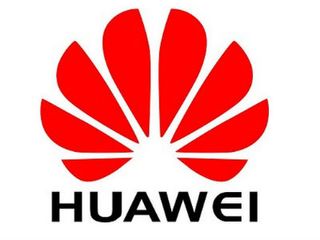Huawei: FCC Can't Block USF Funding

Chinese telecom Huawei has again told the FCC that the commission's proposal to exclude some Chinese companies' technology--Huawei and ZTE-- from Universal Service Fund broadband subsidy support is both legally and factually deficient.
That came in reply comments to the FCC this week.
Related: CCA Opposes USF Ban on Suspect Suppliers
Government contractors can't buy equipment from Chinese telecoms ZTE or Huawei as part of those contracts, and must submit a plan for phasing out the use of that equipment from its systems.
That came with President Donald Trump's signing (Aug. 13) of the John S. McCain National Defense Authorization Act and after the companies were called out by top U.S. intelligence officials as tied to the Chinese government and thus a national security threat.
Huawei says that the Act's prohibition is on government loan or grant programs, not the USF subsidy, and that even if it did, "it would be arbitrary and capricious for the Commission to rely upon it as a basis for its proposed rule banning expenditure of any USF support funds on equipment and services manufactured by specified companies."
Huawei argued for a more holistic approach to cybersecurity. "The telecommunications supply chain is both complex and global, and can only be protected through a risk-based solution developed in collaboration with the private sector. Huawei agrees with industry and government experts that cybersecurity threats require looking beyond banning specific vendors and instead adopting a holistic, forward-looking risk mitigation strategy."
Multichannel Newsletter
The smarter way to stay on top of the multichannel video marketplace. Sign up below.
The Telecommunications Industry Association saw it very differntly. It told the FCC in its reply comments that there is no doubt that Congress' ban on government funds for tech from Chinese telecom Huawei clearly applies to the FCC's Universal Service Fund advanded telecom subsidies."While opposing commenters [like Huawei] seek to manufacture a USF carve-out inthe new statute, none of their arguments withstand scrutiny," TIA said. TIA also says the FCC doesn't need to rely on the congressional ban, can instead adopt its USF tech ban under existing authority, and, in fact, should not wait for the Department of Defense implementation of its ban but "move forward aggressively."
FCC chair Ajit Pai back in March proposed to ban the use of money from the FCC's Universal Service Fund for equipment or services from "companies that pose a national security threat to United States communications networks or the communications
supply chain."
The FCC proposal in part stemmed from a Dec. 20 letter from Congress expressing concerns about Chinese companies Huawei and ZTE, plus a follow-up intelligence briefing, both of which were described as impetuses to the effort to monitor the supply chain, senior FCC officials speaking on background said.
The technology includes everything from phones, tablets and smart watches to mobile hot spots, broadband routers, switchers and servers.
Contributing editor John Eggerton has been an editor and/or writer on media regulation, legislation and policy for over four decades, including covering the FCC, FTC, Congress, the major media trade associations, and the federal courts. In addition to Multichannel News and Broadcasting + Cable, his work has appeared in Radio World, TV Technology, TV Fax, This Week in Consumer Electronics, Variety and the Encyclopedia Britannica.

